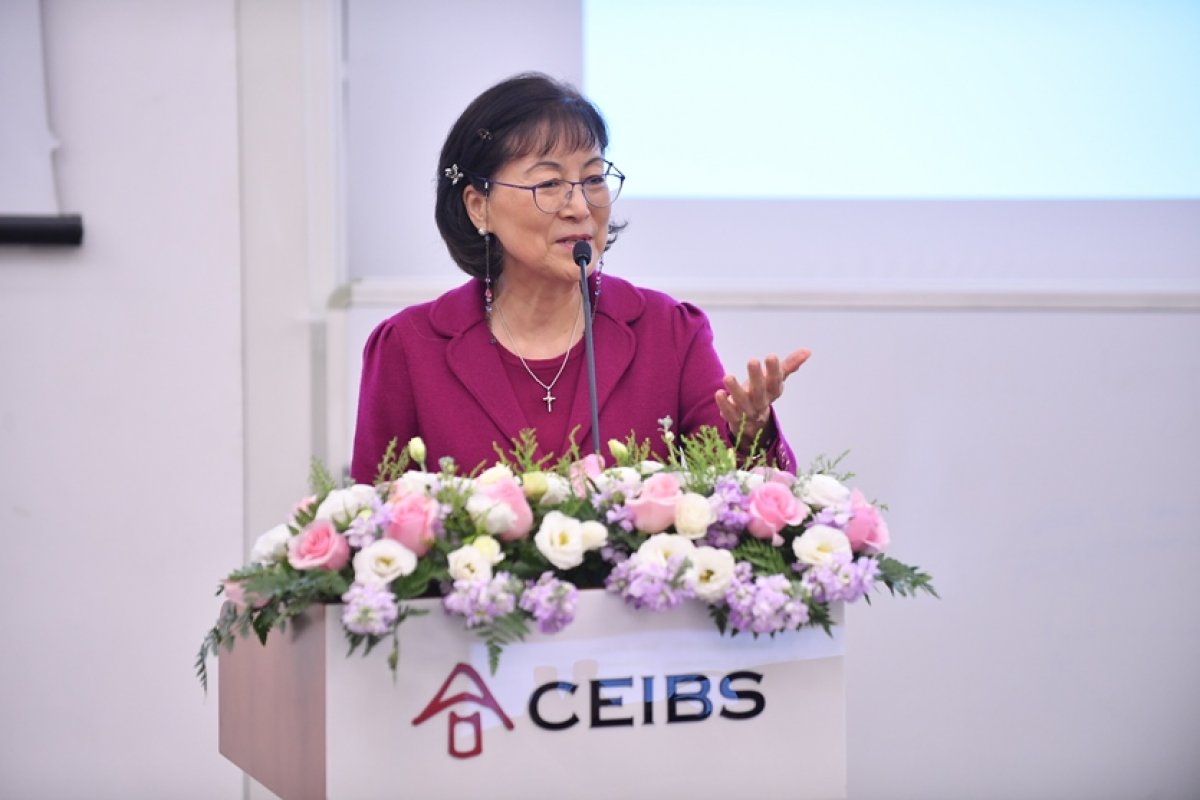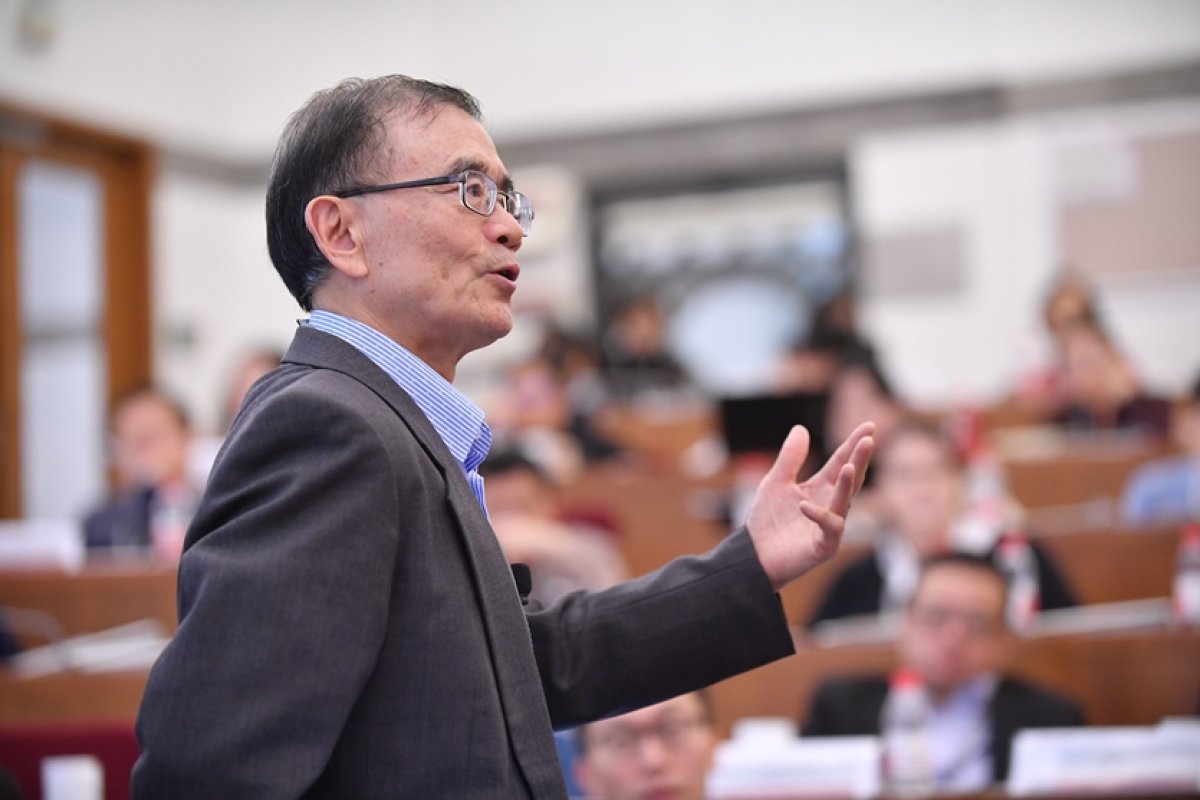4th annual CEIBS OB/HR Symposium: Responsible Leadership in Action
November 26, 2019. Shanghai – Responsible Leadership in Action was the focus of discussions at this year's CEIBS Organisational Behaviour & Human Resource Management Symposium. This symposium examined how business leaders can act responsibly in their leadership roles and the impact of their responsible actions on employees, work teams, and organisations in a Chinese context. More than 120 professors, doctoral students, and practitioners from around the world gathered at CEIBS’ Shanghai campus for the event. The symposium provided a platform for learning, networking, and the discussion of new and exciting research in the area of responsible leadership.
This symposium featured two keynote speakers and two expert panels. One panel focused on morality and leadership and the other on the antecedents and outcomes of firm CSR-related activities. Prof. Jiing-Lih Larry Farh of CEIBS hosted the symposium. CEIBS Co-Dean Prof. Zhang Weijiong and the Head of OBHRM Department Prof. Tae-Yeol Kim offered welcome addresses. Prof. Katherine Xin of CEIBS introduced Prof. Anne Tsui of the University of Notre Dame, who is the keynote speaker and Visiting Thought Leader in OBHRM Department for 2019.
Prof. Tsui gave a keynote speech on Responsible Research: Enhancing Rigor and Relevance in Responsible Leadership Studies. In her speech, she pointed out the twin shortcomings of current business school research – namely, the lack of both rigor and relevance. To counter these weaknesses, she presented a framework of seven principles for responsible research to guide future research on responsible leadership to produce credible and reliable results and potentially useful knowledge.
Leading by morality was the focus of the first panel, chaired by Prof. Andrew Wang of CEIBS. The panel featured three speakers. Prof. Ryan Fehr of University of Washington gave a presentation on What does it mean for a leader to be moral? Considerations on the ethical dimension of leadership. He drew on moralisation and moral foundations literature to propose new ways of thinking about what it means to be an ethical leader. Prof. Sam Yam of the National University of Singapore Business School then discussed the downsides of morality at work in which he challenged the belief that being paragons of morality might always bring about positive consequences. Prof. Hao Zhao of Rensselaer Polytechnic Institute shared his thoughts on the current status of servant leadership research in which he discussed its origins, current state of knowledge, and its relevance in China as well as opportunities for future research.
In the afternoon, the second keynote speaker, Prof. Chao C. Chen of Rutgers Business School, Rutgers University, spoke on Confucian self-reflection and leader moral character building. Drawing on Confucianism and social psychological theory on moral self-regulation, he presented a theoretical model of self-reflection, leader moral character cultivation and responsible leadership in the workplace. Linking the Confucian view of junzi (noble person) and responsible leadership, he discussed what responsible leadership entails, and how leader character can be strengthened through interlocking (moral) self-reflection steps of introspection, self-accountable cognitions and emotions, and self-rectification.
Prof. Byron Lee of CEIBS chaired the second panel, entitled Antecedents and outcomes of firm-level responsible leadership. The panel also featured three speakers. Prof. Jianjun Zhang of Guanghua school of Management, Peking University, shared his research project on Mimicry Dynamics: A Study of Multinational Enterprises’ Philanthropic Donations to Disaster Relief in China. Based on multinational enterprises’ (MNEs) donations to disaster relief following the 2008 Sichuan earthquake in China, he found that MNEs imitate home country peers first and host industry competitors second, as an adaptation to a social movement comparing them with their domestic competitors. Next up, Prof. Chao from Hong Kong University of Science and Technology gave a presentation on Cause-related Marketing and Employee Engagement: The Roles of Admiration, Implicit Morality Beliefs, and Moral Identity. She used two field experiments to show that cause-related marketing enhances employees’ admiration for their company, which in turn promotes job engagement. The third speech was given by Prof. Ho Kwong Kwan of CEIBS on Antecedents and outcomes of CEO family-supportive supervisor behaviours. His research explored how and why CEOs exhibit family-supportive supervisor behaviours (FSSB) produced beneficial effects on management teams. These benefits include work-family conflict reduction and better work-family balance.
Prof. Jean Lee of CEIBS chaired the closing session of the symposium in which Prof. Anne Tsui, Chao Chen, and Tae-Yeol Kim gave concluding remarks. It was a very successful event with great learning and deep appreciation by the audience and the speakers.

















